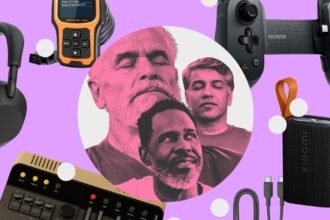When Adam Mosseri assumed the role of CEO at Instagram in 2018, he encountered a troubling situation characterized by what he later termed “concerning” declines and stagnations in user engagement. This was partly due to the intense competition from a burgeoning app: TikTok. By 2019, Instagram estimated that 23 percent of the decrease in user time spent on its platform in the US was attributable to TikTok. As TikTok continued to grow during the covid-19 pandemic, Mosseri communicated to his team in March 2020, “We can’t explain everything, but it’s evident we need to adapt quickly.” He emphasized the necessity for Instagram to revitalize itself, noting in a courtroom testimony that “you’re either growing, or you’re slowly dying.”
During his testimony in the Federal Trade Commission’s antitrust case against Meta, which claims the company has unlawfully monopolized the market for personal social networking services—encompassing platforms like Snapchat but excluding entertainment-centric platforms such as YouTube and TikTok—Mosseri portrayed the challenging landscape Instagram faced. His remarks underscored not only Instagram’s rivalry with TikTok but also the platform’s commitment to maintaining social connections. This suggests that it might still represent a relevant market for the court to consider in terms of potential monopoly.
Since Mosseri’s March 2020 alert, Instagram has made strides, partially due to enhanced AI-driven recommendations for Reels. However, he acknowledged that TikTok remains “the fiercest competition we’ve ever encountered.” As Instagram has worked to better compete with TikTok’s Reels feature, Mosseri indicated that TikTok has also shifted to resemble Instagram more closely. Whereas he previously viewed TikTok as a predominantly “lean-back experience,” he now considers it “just as engaging and participatory as we are.” He noted TikTok’s efforts to foster user connections, including the recent introduction of a feed showcasing friends’ videos, despite a TikTok executive stating that only 1 percent of the content consumed on the platform comes from that feature.
Throughout the trial, Meta has stressed that the role of connecting with friends and family has diminished in light of competitive pressures. Nevertheless, Mosseri’s testimony emphasized that facilitating user interactions with friends remains a fundamental aspect of Instagram today, distinguishing it from its competitors. In a video on his Instagram account from 2024, he explained that the reason for not expanding into long-form video was its lack of suitability for sharing among friends. He acknowledged that while the app has seen overall growth, “the proportion of the app devoted to friend-related content has decreased.”
In an email to Mosseri in 2018, Zuckerberg underscored the necessity for Instagram to prioritize connections with friends, insisting that, even as the platform evolves to include more entertainment, it “can never solely cater to public figures or it will lose its social essence.”









